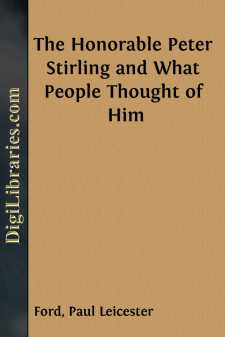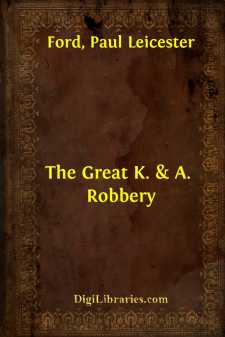Categories
- Antiques & Collectibles 13
- Architecture 36
- Art 48
- Bibles 22
- Biography & Autobiography 816
- Body, Mind & Spirit 145
- Business & Economics 28
- Children's Books 17
- Children's Fiction 14
- Computers 4
- Cooking 94
- Crafts & Hobbies 4
- Drama 346
- Education 58
- Family & Relationships 59
- Fiction 11834
- Foreign Language Study 3
- Games 19
- Gardening 17
- Health & Fitness 34
- History 1378
- House & Home 1
- Humor 147
- Juvenile Fiction 1873
- Juvenile Nonfiction 202
- Language Arts & Disciplines 89
- Law 16
- Literary Collections 686
- Literary Criticism 179
- Mathematics 13
- Medical 41
- Music 40
- Nature 179
- Non-Classifiable 1768
- Performing Arts 7
- Periodicals 1453
- Philosophy 66
- Photography 2
- Poetry 897
- Political Science 203
- Psychology 45
- Reference 154
- Religion 516
- Science 126
- Self-Help 85
- Social Science 82
- Sports & Recreation 34
- Study Aids 3
- Technology & Engineering 59
- Transportation 23
- Travel 463
- True Crime 29
Our website is made possible by displaying online advertisements to our visitors.
Please consider supporting us by disabling your ad blocker.
The Honorable Peter Stirling and What People Thought of Him
Description:
Excerpt
CHAPTER I.
Mr. Pierce was talking. Mr. Pierce was generally talking. From the day that his proud mamma had given him a sweetmeat for a very inarticulate "goo" which she translated into "papa," Mr. Pierce had found speech profitable. He had been able to talk his nurse into granting him every indulgence. He had talked his way through school and college. He had talked his wife into marrying him. He had talked himself to the head of a large financial institution. He had talked his admission into society. Conversationally, Mr. Pierce was a success. He could discuss Schopenhauer or cotillion favors; St. Paul, the apostle, or St. Paul, the railroad. He had cultivated the art as painstakingly as a professional musician. He had countless anecdotes, which he introduced to his auditors by a "that reminds me of." He had endless quotations, with the quotation marks omitted. Finally he had an idea on every subject, and generally a theory as well. Carlyle speaks somewhere of an "inarticulate genius." He was not alluding to Mr. Pierce.
Like most good talkers, Mr. Pierce was a tongue despot. Conversation must take his course, or he would none of it. Generally he controlled. If an upstart endeavored to turn the subject, Mr. Pierce waited till the intruder had done speaking, and then quietly, but firmly would remark: "Relative to the subject we were discussing a moment ago—" If any one ventured to speak, even sotto voce, before Mr. Pierce had finished all he had to say, he would at once cease his monologue, wait till the interloper had finished, and then resume his lecture just where he had been interrupted. Only once had Mr. Pierce found this method to fail in quelling even the sturdiest of rivals. The recollection of that day is still a mortification to him. It had happened on the deck of an ocean steamer. For thirty minutes he had fought his antagonist bravely. Then, humbled and vanquished, he had sought the smoking-room, to moisten his parched throat, and solace his wounded spirit, with a star cocktail. He had at last met his superior. He yielded the deck to the fog-horn.
At the present moment Mr. Pierce was having things very much his own way. Seated in the standing-room of a small yacht, were some eight people. With a leaden sky overhead, and a leaden sea about it, the boat gently rose and fell with the ground swell. Three miles away could be seen the flash-light marking the entrance to the harbor. But though slowly gathering clouds told that wind was coming, the yacht now lay becalmed, drifting with the ebb tide. The pleasure-seekers had been together all day, and were decidedly talked out. For the last hour they had been singing songs—always omitting Mr. Pierce, who never so trifled with his vocal organs. During this time he had been restless. At one point he had attempted to deliver his opinion on the relation of verse to music, but an unfeeling member of the party had struck up "John Brown's Body," and his lecture had ended, in the usual serial style, at the most interesting point, without even the promise of a "continuation in our next." Finally, however, the singers had sung themselves hoarse in the damp night air, the last "Spanish Cavalier" had been safely restored to his inevitable true-love, and the sound of voices and banjo floated away over the water....




![The True George Washington [10th Ed.]](https://digilibraries-com.s3.eu-central-1.amazonaws.com/covers/d97070d4-6258-48ea-a40a-53d98fa78a5c.jpg)